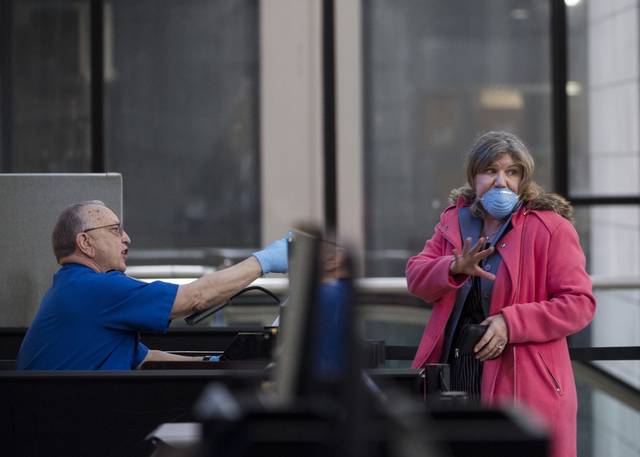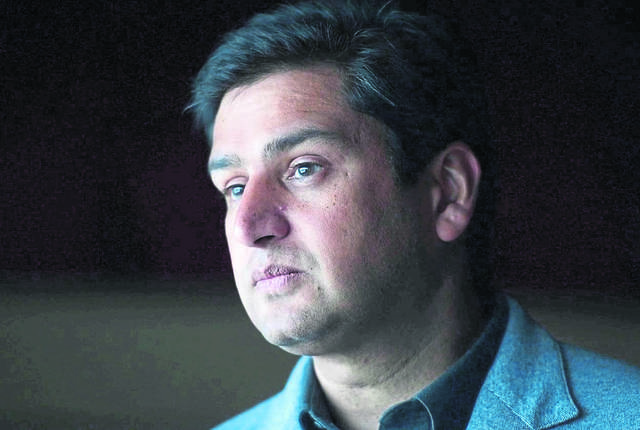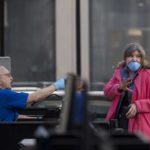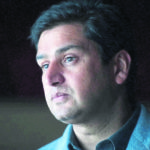As the nation braces for what leaders say will be one of the hardest weeks of the coronavirus pandemic , the Tribune-Review reached out to an infectious disease expert to help sort out the issues. Pittsburgh-based Dr. Amesh Adalja, a fellow of the Infectious Diseases Society of America, has been answering our questions throughout the crisis and takes on some of the pressing issues developing this week.
Trib: There’s a lot of talk about this week being bad in terms of a surge in deaths. Dr. Deborah Birx, the White House coronavirus response coordinator, says we should avoid grocery stores and pharmacies. Does her advice apply to Western Pennsylvania?
Dr. Adalja: My understanding is that she amended that statement yesterday. She recommends that people consolidate their trips to the grocery stores and designate one member of the family to be the one that goes. What we’re seeing in the country is heterogeneity in transmission but all locations are impacted. I do think it is reasonable to try and limit one’s exposure to the virus by taking such actions, especially if one is in a high-risk category. However, I do believe that people have some flexibility in integrating social distancing into their lives.
Trib: People seem to be venturing out more, particularly in Pennsylvania, where we seem to be getting worse at social distancing, according to some data. If we get away from social distancing now, could we pay the price later?
Dr. Adalja: We know that the virus is in Pennsylvania and that we have only blunt tools like social distancing to prevent the spread. If social distancing is totally disregarded, we will see more disease transmission. While many of the cases will be mild, there will be some that require hospitalization and we will put our hospitals under added stress.
Trib: Some people argue that a lockdown can’t last for months. Is it too early to start exploring when certain parts of the country can start opening up for business in a safe way?
Dr. Adalja: When economic shutdowns were initiated, it was often very broad and blanket in nature. I do think it is important that we look at how businesses can operate in a modified form. Even now there is a process for exemptions. As diagnostic testing capacity increases in hospitals, there must be a process for reassessing the shutdown orders.
Trib: Some people say they aren’t being tested when they develop symptoms and call their doctors or hospitals. What’s your advice for people who don’t get tested and have symptoms of covid-19?
Dr. Adalja: If you have symptoms consistent with the coronavirus and are unable to be tested, you should still act as if you have this virus and self-isolate yourself for a period of time. You should be on the lookout for the development of shortness of breath as well and have a low threshold to contact your doctor if worrying symptoms develop.
Trib: What is the biggest misconception about covid-19 that you’ve seen in recent weeks?
Dr. Adalja: People don’t realize that we know a lot about coronavirus. This is the seventh human coronavirus. There is a lot we know about the other six that are directly applicable to this one.
Trib: Do you have any theories about why a nearby state like Michigan has been hit so hard with covid-19?
Dr. Adalja: This outbreak has some heterogeneity in each state that it’s impacted. In Michigan, for example, the majority of the cases are in the metro Detroit area, which has higher population density than some other parts of the country. There have also been notable clusters including within the Detroit police force. Each state is going to have its own experience with this virus that reflects the idiosyncrasies of its population, its demographics and events that led to it spread.
Trib: I know we’ve asked you before about a vaccine … can one be fast-tracked?
Dr. Adalja: The vaccine is being fast-tracked. Fast for a vaccine does not mean a matter of months, it will still take 12 to 18 months if everything goes perfectly. Remember, the time scale of a vaccine is usually measured in years and decades, so this is fast-tracked.











